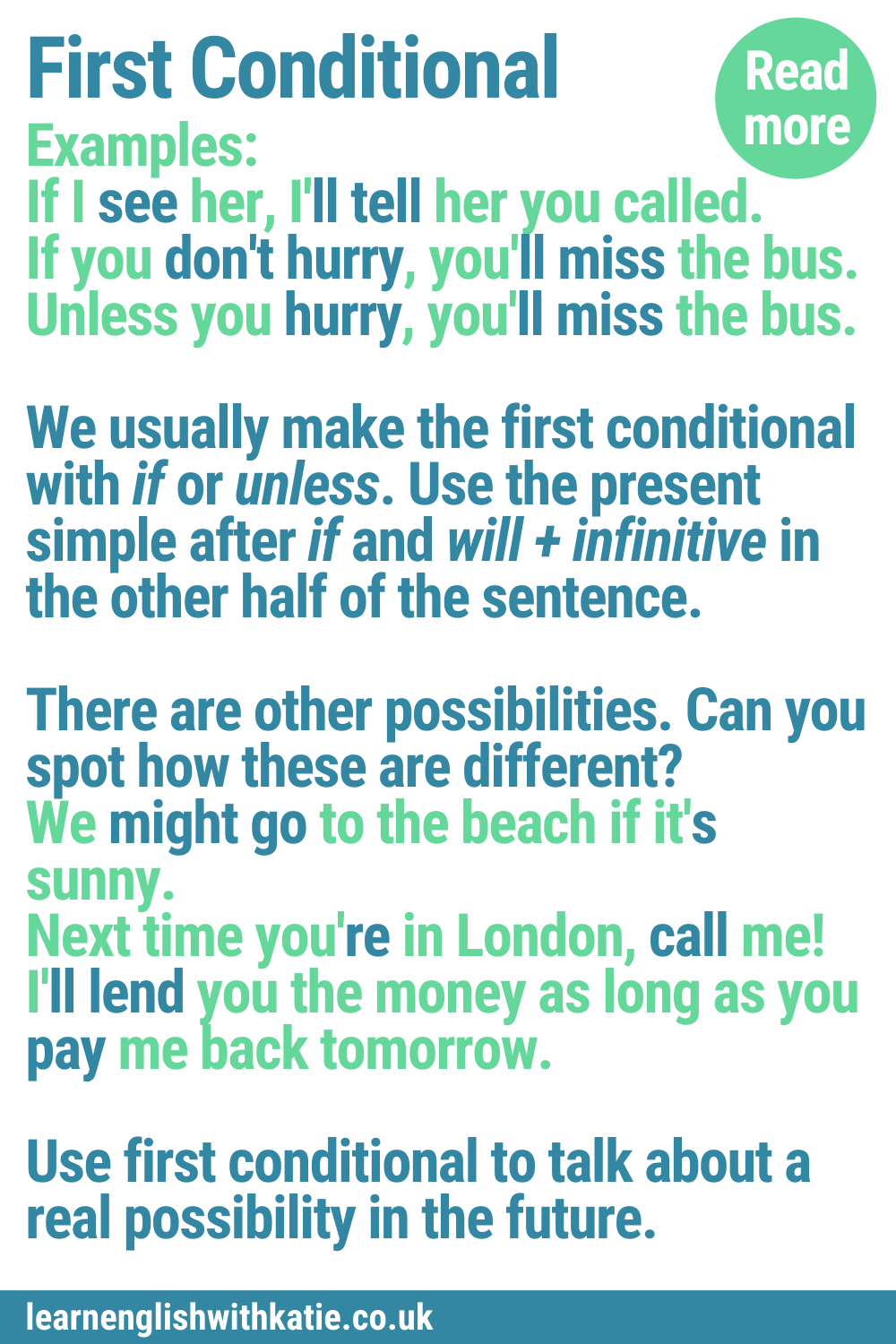|
This is the second in my conditionals series. Today I'm going to tell you about the first conditional. We use this to talk about a real possibility in the future. We usually make the first conditional with the present simple after if and will/won't + infinitive in the other half of the sentence. Examples: If I drink coffee, I won't sleep tonight. I'll go for a walk this afternoon if it stops raining. If I see her, I'll tell her you called. If you don't hurry, you'll miss the bus. You can also use other linking words such as unless or as long as instead of if. I'll lend you some money as long as you pay me back tomorrow. Unless you hurry, you'll miss the bus. Remember, when the linking word is at the beginning, you need a comma in the middle. We sometimes use be going to instead of will: If you don't hurry up, you're going to miss the bus. Or might instead of will when we are less certain: We might go to the beach tomorrow if it's sunny. Or the present perfect instead of the present simple: I'll see you later if I've finished all my homework in time. Or the imperative: If you're in London again next week, call me! In all the sentences above, we are talking about something which is probable or likely in the future. We use future tenses in the same way that we normally would. The only thing that's difficult for some learners is that we don't use will in both halves of the sentence. For example: If I will have time, I will help you. ❌ If I have time I will help you.✔️ This is a very common mistake to make so try to avoid it! The main points to remember about the first conditional are: 1. It describes something that is possible in the future. 2. It's real (not hypothetical). 3. We usually use the present simple after if and will/won't + infinitive in the other half of the sentence. To learn about the zero conditional, click here. You can read about the second conditional here. Would you like more lessons, as well as tips for learning English, sent straight to your email inbox? Click the button and sign up:
1 Comment
|
About the blogFollow the blog for mini lessons and tips on how to improve your English. Categories
All
Archives
July 2024
|

 RSS Feed
RSS Feed
